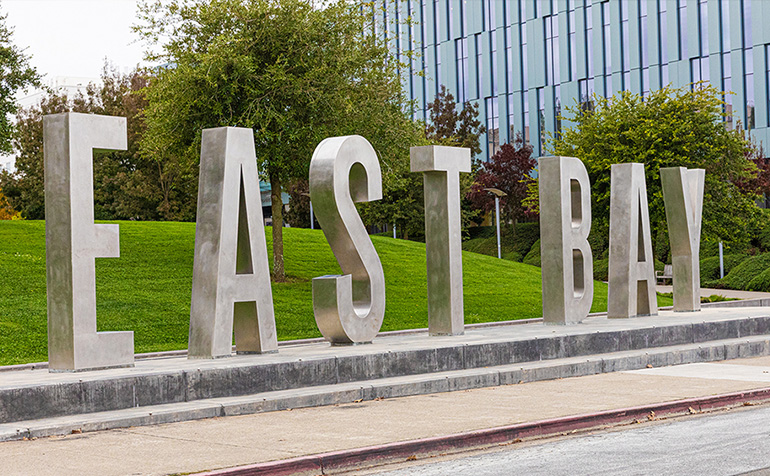CSU Tuition Increase
On September 13, 2023, the California State University Board of Trustees approved a multi-year tuition proposal that will increase tuition by six percent per year for five years, and help to bring stability to the budgets of universities across the CSU system, including Cal State East Bay's. Under the approved proposal, the annual tuition increase for a full-time undergraduate student will be $342, beginning in the 2024-25 academic year.
Commonly Asked Questions
The CSU requires additional resources to continue to provide its students with an accessible, high-quality education that prepares its graduates for success.
The CSU has been perennially underfunded and needs to both increase revenue and build stability into its budget. The CSU’s largest revenue source, money from the state of California fluctuates and is dependent on California’s economy. If the CSU were to continue to over-rely on the state general fund and opt not to change tuition rates (effectively freezing one of its two primary revenue sources), it would jeopardize the university’s financial situation and its ability to educate students.
Unlike the vast majority of colleges and universities across the country, the CSU has held tuition flat for 11 of the last 12 years through 2023-24, which has helped maintain its affordability and has kept the CSU as one of the country’s most affordable institutions of higher education. Even with the increase over the next five years, the CSU will remain below the national $10,000 tuition average.
It must be emphasized that the additional revenue is necessary to pay for existing programs, services, priorities and unfunded state and federal mandates. That said, additional revenue received from a tuition increase would also be invested in the budget priorities that reflect the values and mission of the university. The increased tuition revenue would go toward existing and new priorities, including:
- Expanding the work of the CSU’s Graduation Initiative 2025 to support the CSU’s broader mission to advance educational equity so that all students have the equal opportunity to earn the lifelong, life-transforming benefits of a CSU degree.
- Continuing to provide non-loan financial aid to assist students with the greatest financial need. This would cover the full cost of tuition and could also be expanded to cover other attendance costs of the university.
- Providing competitive, fair salaries and benefits to our faculty and staff who educate, support, inspire and uplift our diverse and talented students.
- Ensuring safe, modern and sustainable facilities where teaching, learning and student well-being can thrive.
Additionally, revenue will be directed to other student-focused programs and services, including:
- Tutoring, peer mentoring and academic support to increase student success;
- Cultural centers (space, staffing and programming);
- Title IX enhancements to include bystander and prevention education;
- Increasing the number of students participating in high-impact practices such as undergraduate research, international experiences and internships;
- Early-alert systems and case management efforts to support student retention, persistence and completion;
- Increased efforts to re-engage and re-enroll students who have dropped out of college; and
- On-campus student employment opportunities.
Yes. The CSU will dedicate one-third of additional revenue to support financial aid. The CSU’s financial aid funding will grow by $280 million (from 2024-25 through 2028-29) to accommodate eligible students' additional expenses that could result from a tuition increase.
Financial aid awards for low-income students will increase to cover the cost of the potential tuition increase. Currently, nearly 82% of all CSU students receive some form of financial aid, and 60% of CSU undergraduate students would continue to have tuition fully covered by grant aid or waivers. To learn about your opportunities for financial aid, please contact Financial Aid and Scholarship at finaid@csueastbay.edu or visit their website.
The Chancellor's Office considered a variety of tuition rate options, including cohort models, which would increase tuition rates only for the entering cohort of first-year and transfer students. Each option had advantages and disadvantages, and those options were carefully considered resulting in the interim chancellor ultimately recommending a 6% increase for all students to strike a balance between keeping tuition as low as possible and generating sufficient levels of tuition revenue to advance more of the CSU's priorities.
Currently, CSU tuition rates are among the lowest rates in the country. Even with the proposed tuition increases, CSU rates would still compare favorably to those of other universities. Assuming tuition and fees at comparison institutions grow at their recent average rate, CSU tuition and fees would not reach the comparison average until at least 2041-42.
Nearly 82% of all CSU students receive financial aid. And, 60% of undergraduate students receive non-loan aid to cover the full cost of tuition. Those students would not be affected by a tuition increase because their tuition is fully covered by a Cal Grant, a State University Grant, or a waiver.
Though Cal State East Bay administration was not involved in this decision, we can assure students the Board of Trustees would not have implemented this increase if they didn’t feel it was absolutely necessary. Nevertheless, many students are stretched thin and this will be a burden.
Students in need should visit the Financial Aid office as well as programs on campus like Basic Needs.
Yes. Today, tuition and state general fund cover the salaries of faculty and staff. The additional revenue would be used to fund faculty and staff compensation increases. The ability to interact, learn from, and be guided by appropriately compensated faculty and staff is central to the student experience.





